The Chronicle of Wulfgar Brögaenson
Herein lies the tale of Wulfgar Brögaenson; son of The Spêdigwald, hero of the Norfênkin, martyr of Hastia, and champion of the old gods.
Wulfgar was born in the village of Feldheorð, on the outskirts of The Spêdigwald in central Ætheland. The Percians controlled the land, and his people struggled to farm and hunt enough food for themselves, but still the empire took most of it and called it taxes.
One day, Wulfgar was foraging deep in the wood when he became lost. The day drew long and night approached, and Wulfgar pleaded to the old god Braegor to guide him to safety. A wolf appeared from the forest - some say it was Braegor's companion Michân - and lead the lad to a large oak tree in the center of a vale.
As he sat beneath a great oak, the aged bark twisted into the face of a man. The tree was actually an ent - a living spirit of the forest - and it agreed to shelter Wulfgar until morning. The ent lowered its boughs to shield the boy and creatures of the forest gathered around them, keeping silent sentinel over the child through the night.
Tales of Wulfgar's blessing from the old gods spread. The elders of the tribes saw this as a sign, and as the boy became a young man, his name was sung in festhalls across The Spêdigwald.
It was not long before he began to catch the eyes of young women, and he often hid from their affections in the forest. One such woman, Hildegärd, followed him into the woods one day and caught him in a clearing playing his flute. She was enraptured by his song as much as his beauty, and she professed her love for him there beneath the very oak that had once sheltered a small boy.
Wulfgar and Hildegärd were married that spring, and by late summer she was swollen with child. The harvest was the most bountiful in recent memory that year, and the tribal elders said the old gods were showering the young couple with gifts to celebrate their first child. As the first snows began to fall, Hildegärd gave birth to Wulfgar's son, who he named Yarich.
The new family started their own farm near the edge of the forest, and for some time they lived a happy life. The presence of the Percian Empire seemed far away on most days, but still they lived under the constant yoke of the foreigners who ruled over them from afar.
Over time, the demands of the Empire grew. The suffering of the
Norfênkin was of no concern to the southern rulers, and year after year they demanded more tribute. All the produce of the land was theirs by right, they claimed. Crops of the field, meat of the hunt, and even the metals dug from the earth were demanded of the northern folk.
Men, women, and children gathered in The Spêdigwald; and the soft grumble of discontent soon grew to fervent discussion of rebellion. Many looked to Wulfgar, blessed by Braegor, to beseech the old gods to aid them in their time of need. It is said that he rode deep into the forest one night and met with the warlord of the heavens in person to beg his blessing.
And so did the
Norfênkin of The Spêdigwald ride to war against the Percian Empire. Hundreds of men gathered from all the reaches of the forest and even from lands beyond, determined to throw off the chains of their masters and assert their right to freely govern themselves. Braegor's blessing was prayed for before each battle, and the warriors were imbued with great strength and endurance.
Wulfgar himself lead many raids. Mounted upon his warhorse Ghefmân - named in honor of the spirit of the old ways, which was said to be the father of all horses - he lead men against Percian outposts, villages, and towns. He sacked the towns and razed the outposts. He left no Percian soldier alive from each battle save one, so that there might be someone to spread the word south that the
Norfênkin would no longer be puppets of the Empire.
The lands south of The Spêdigwald burned as the
Norfênkin ranged far from the forest. Soon they stood on the doorstep of the Empire itself, before the walls of the city of Hastia. Undaunted, Wulfgar encircled the city and laid siege for ten days and nights. On the eleventh day, the gates were breached and the men of the north swarmed inside. The Percians stood within, their great phalanx ready to repel the rebels. Archers rained arrows down upon Wulfgar's men, and he was struck by several himself.
Still he fought on, ignoring the arrows that protruded from him like the spines of a hedgehog. Many say Fraega - Braegor's shield maiden - protected him and gave him the strength to fight on. The defenders were pushed back and eventually scattered, and the town of Hastia was the first ever in the heartland of the Empire to ever be sacked.
Wulfgar stood inside the broken gates of Hastia and bore witness to the aftermath. He saw gilded towers set alight with flame. He saw his men carry produce, wine, and grain from the town. He said only two words before he died:
Hildegärd...Yarich...
The Old Gods
The old gods once reigned over all of Ætheland, but with the spread of the Percian Empire their power has waned over the last several centuries. The power of the Percian gods, powered by their aggressive conversion of those they conquer, has pushed the old gods back to the shadows of the deep forests and the frozen north. Chief among the old gods is Braegor, warlord of the heavens, and it is he who chose Wulfgar to champion their return. Since his death, the men of the north have risen up against their former oppressors and the old gods have regained much of their lost power. With the Percian Empire now crumbling, they stand poised to once more dominate Ætheland.
Braegor and the wolf spirit Michân.
Braegor and Wulfgar meet in The Spêdigwald.
Offerings are made to Braegor on the eve of battle.
Wulfgar's Legacy
Some say that although Wulfgar Brögaenson no longer walks among mortal men, his spirit still leads the forces of Ætheland into battle against the Percian Empire and fights alongside them. His sacrifice inspired not only the people of the Spêdigwald, but those of the entire region.
In the hundred years since his death, the
Norfênkin have taken back their lands from the Percian Empire. The Old Gods now thrive in the Northlands. Prayers are made before battle to Braegor, and when facing the Percians also to Wulfgar.
Each summer the fall of Hastia is celebrated with festivals across the land, and songs are sung of Wulfgar's life and his heroic death. Men drink in his honor, and children reenact the siege of Hastia. Though his life was short, his legacy lives on in the hearts of all the
Norfênkin.
Entry for Death of a Legend

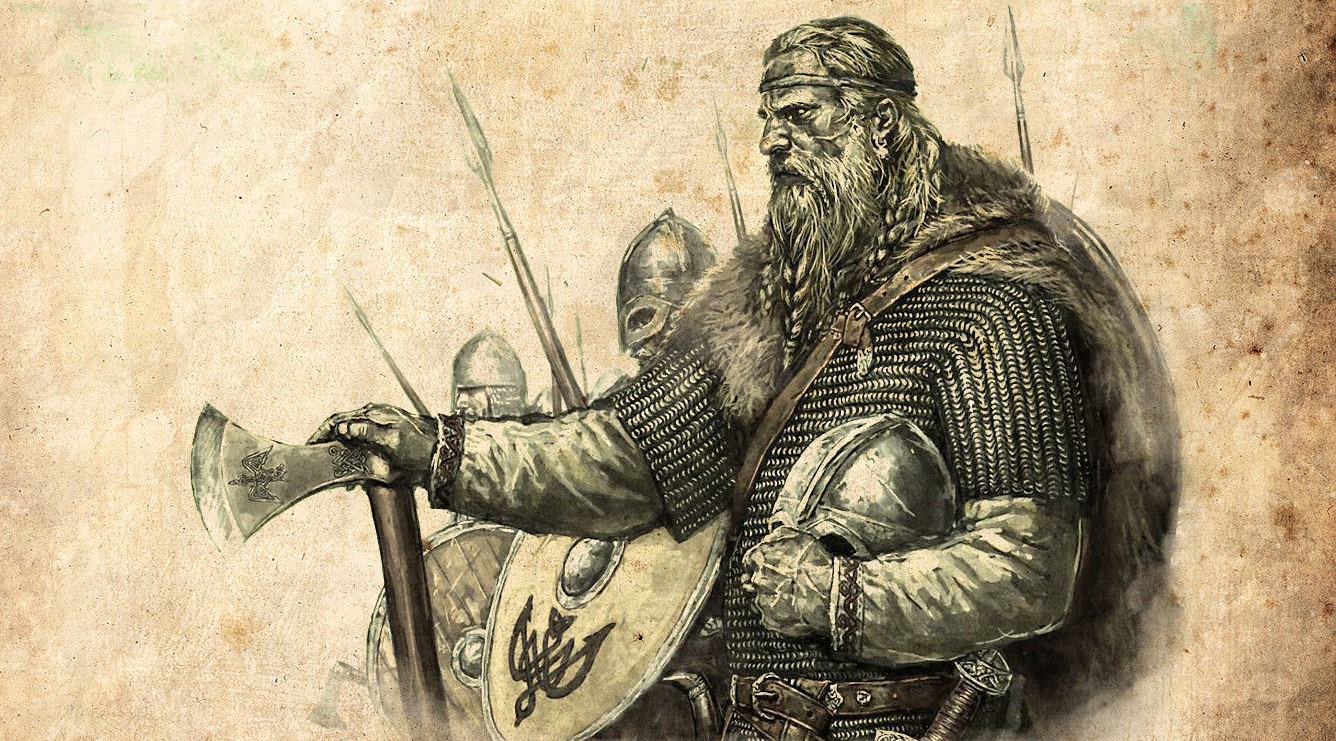
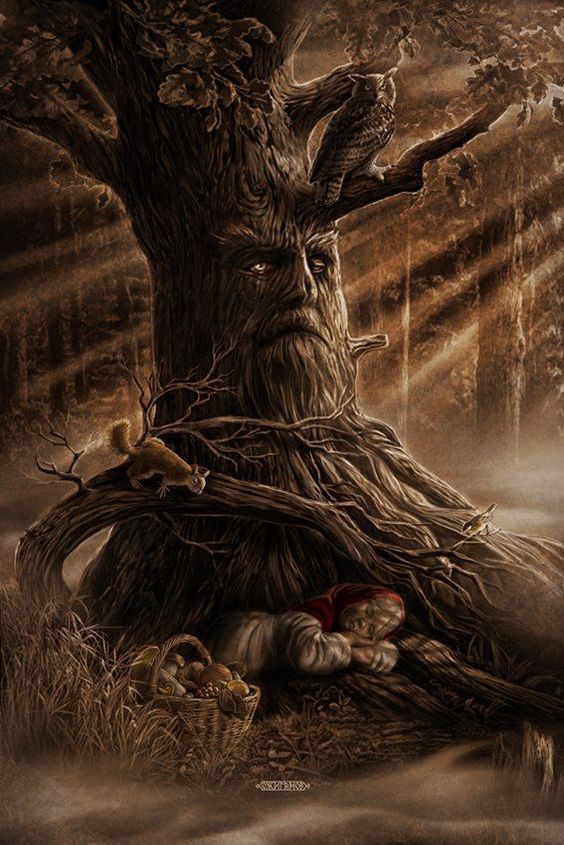
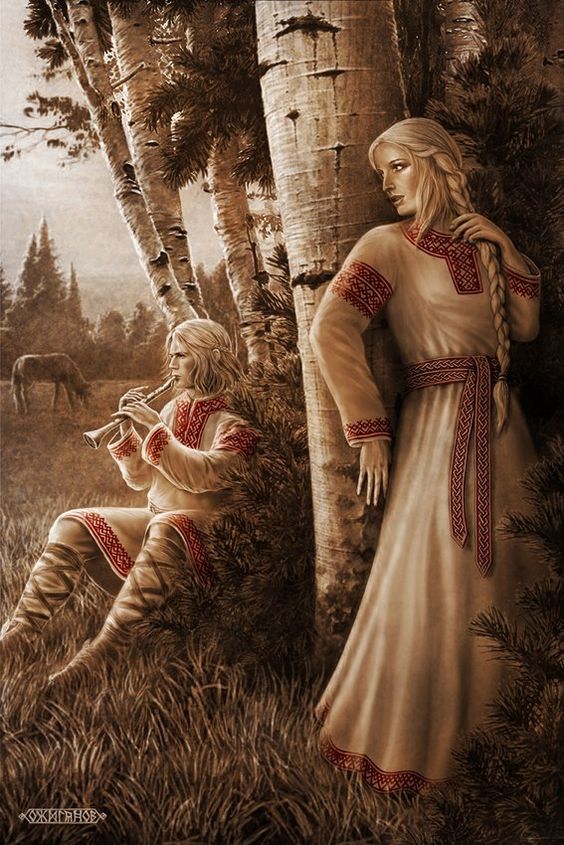
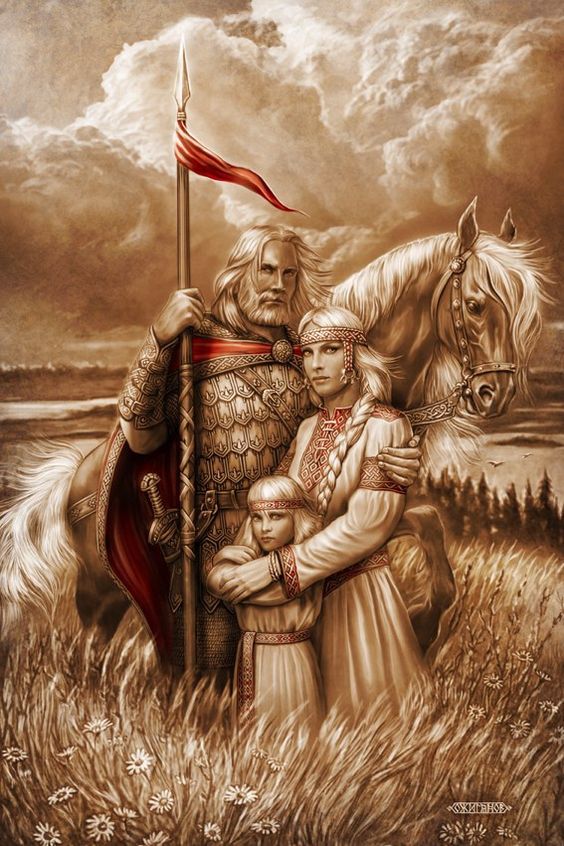
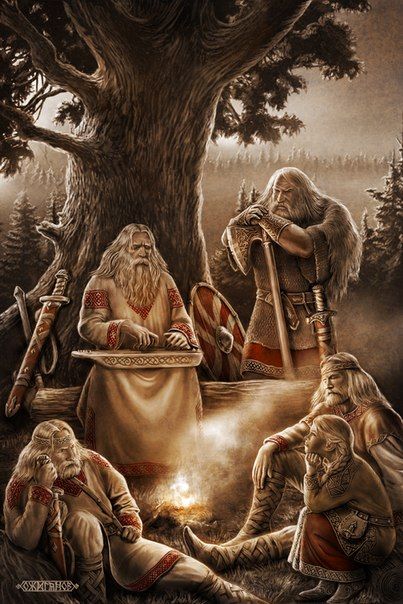
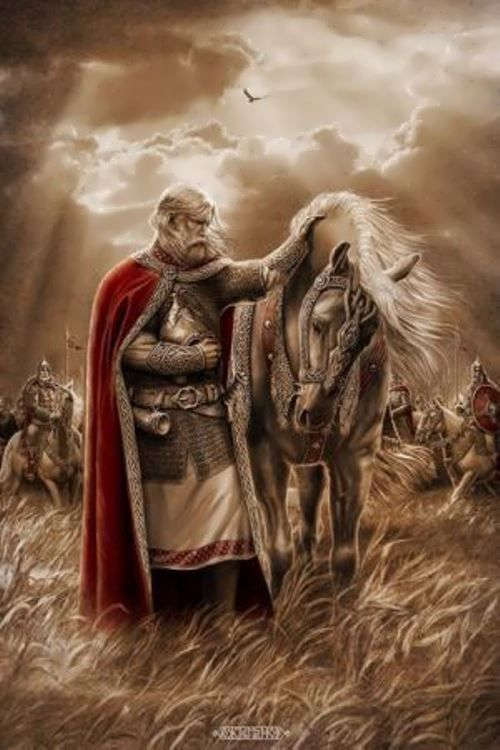
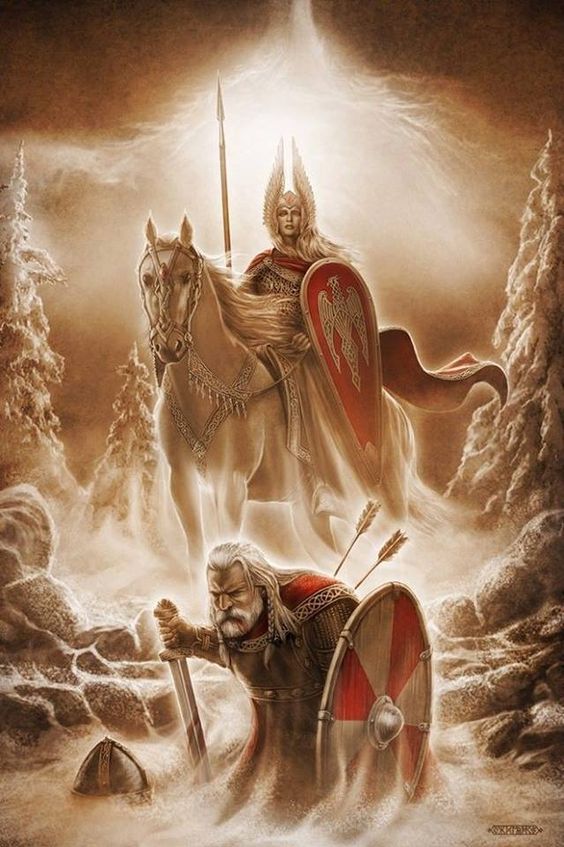
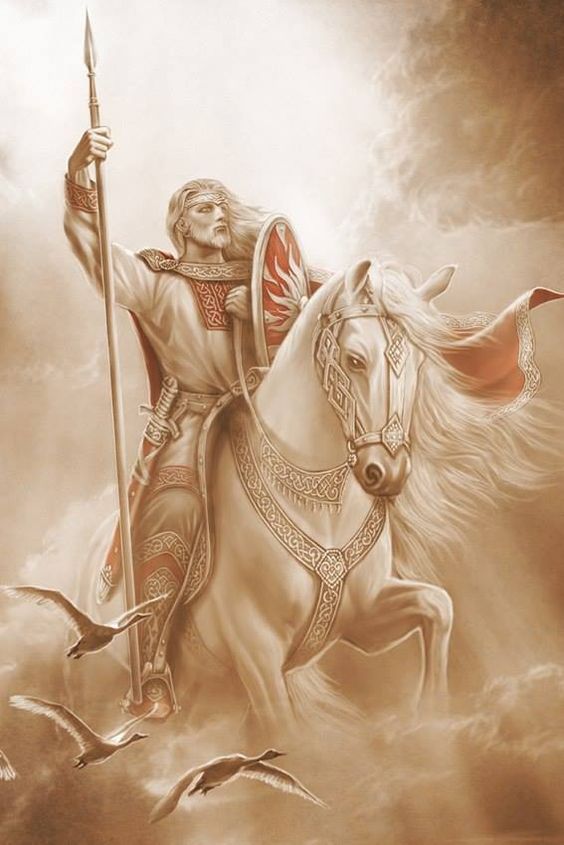
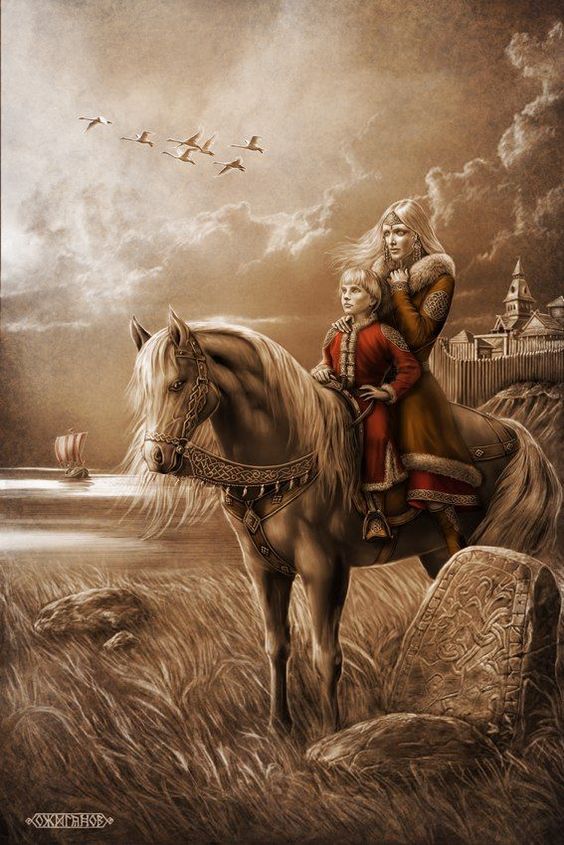
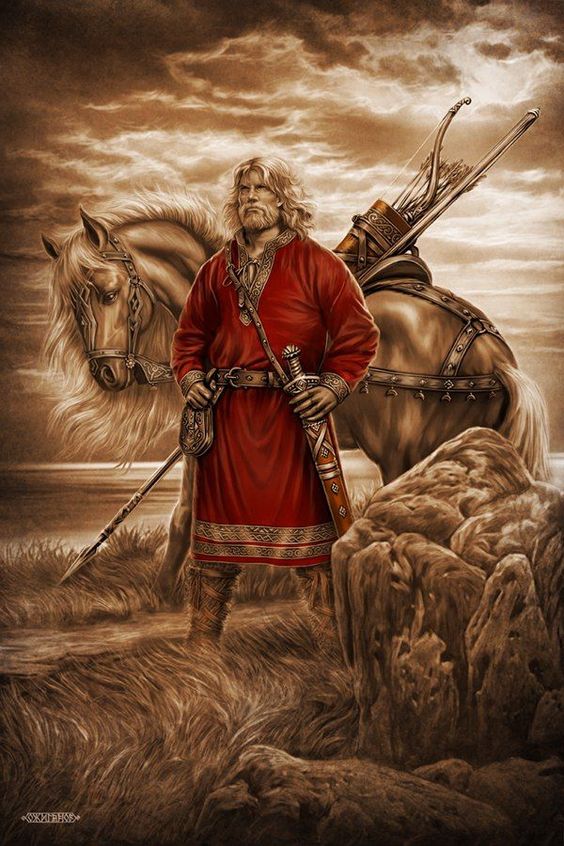
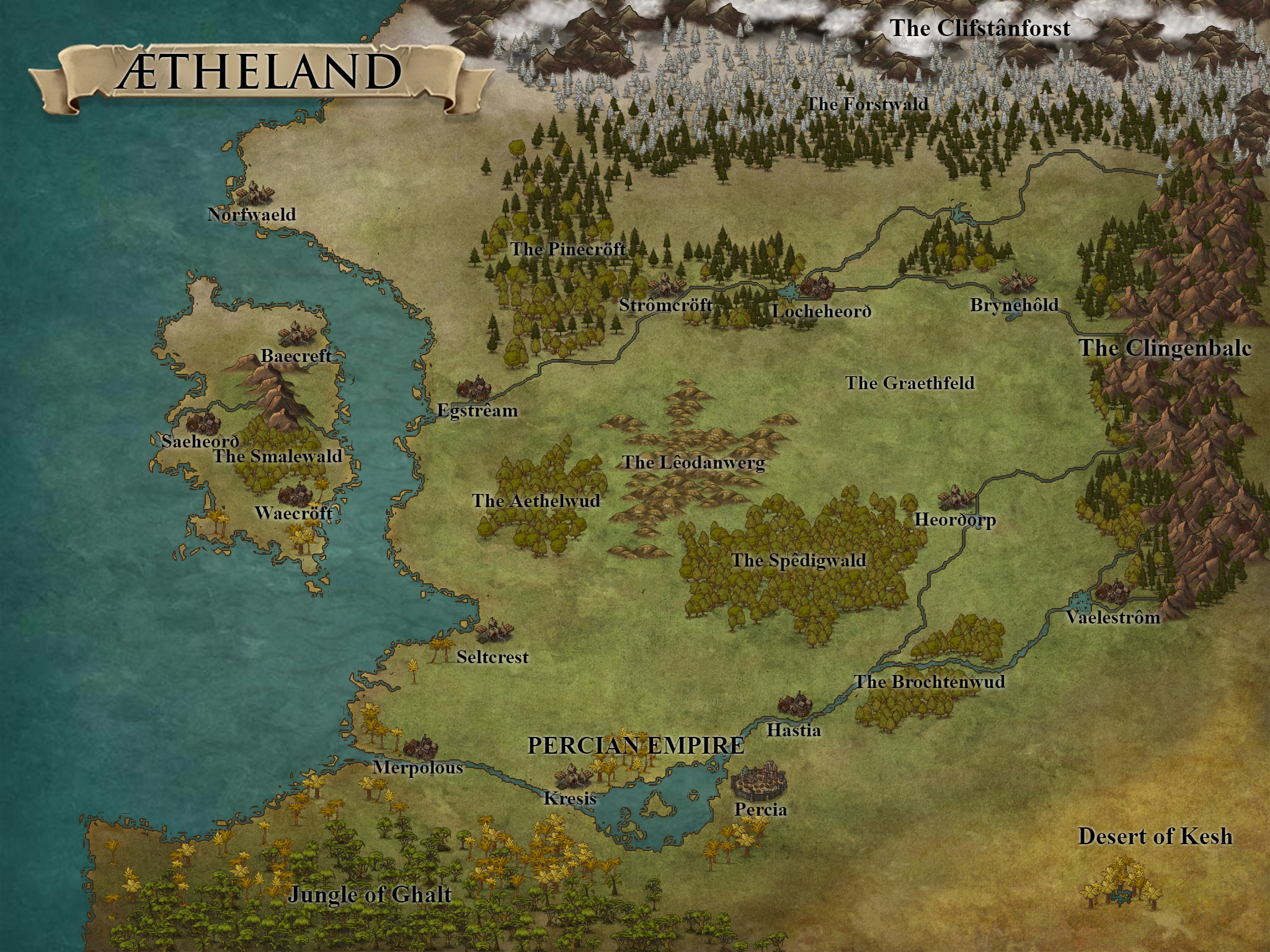
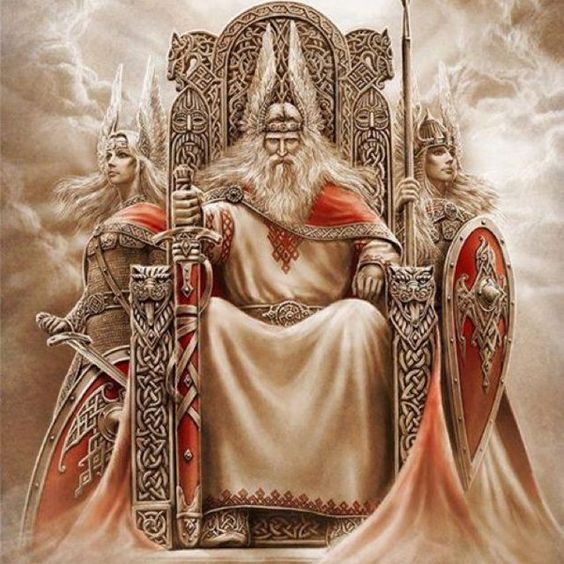
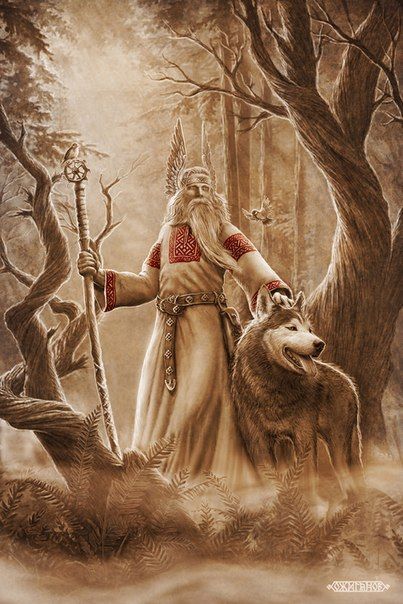
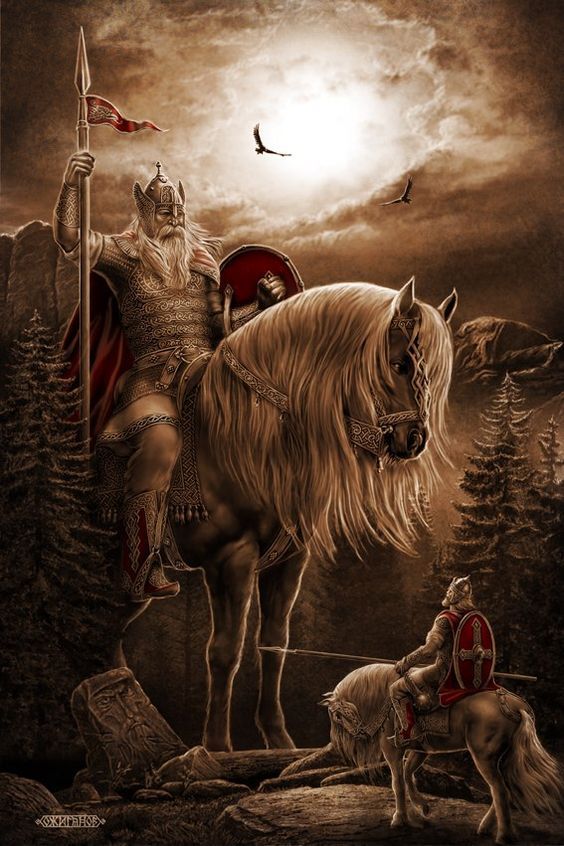
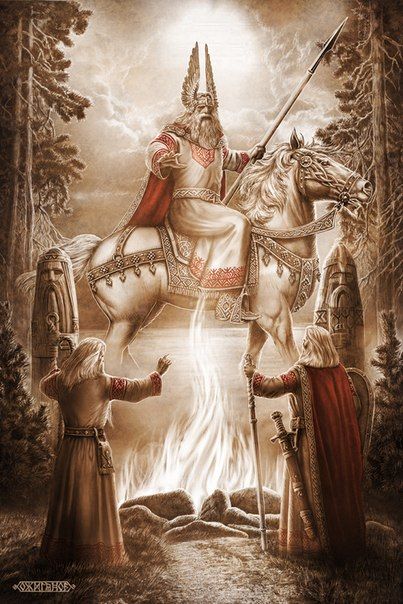
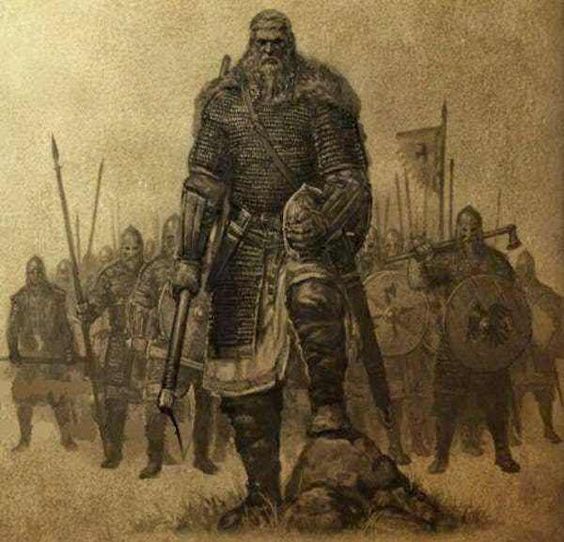

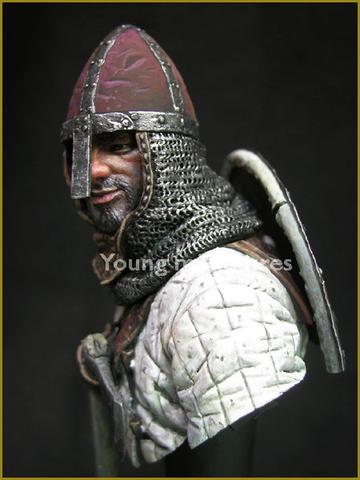
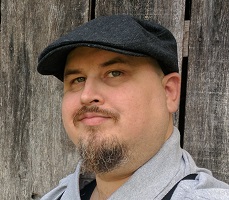
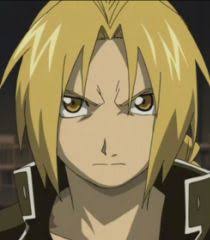
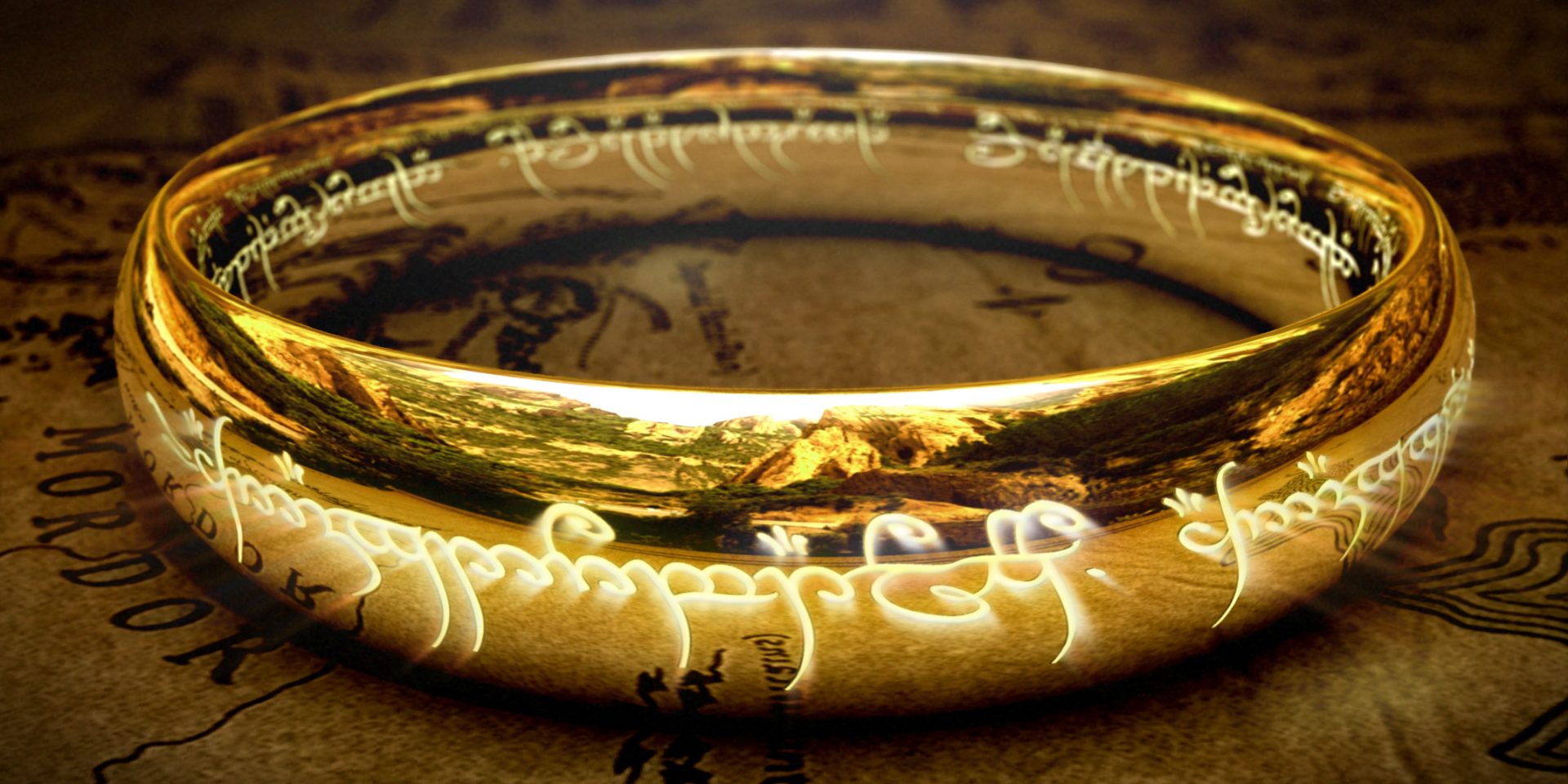
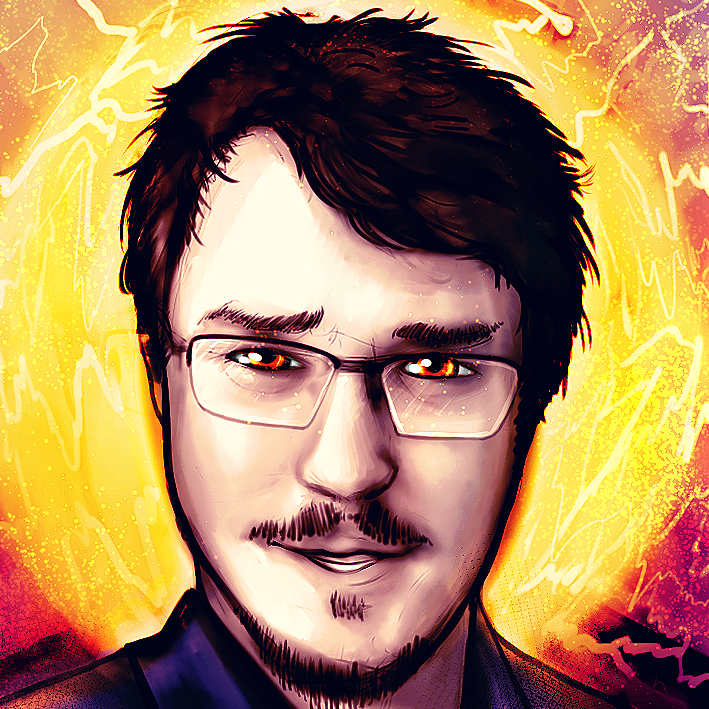







I love the artwork with the text! Do you draw them yourself?
I wish! No, they were drawn by an artist named Igor Ozhiganov. I have a citation on the footer for him. Exceptions are the header and the last image in the footer. It's actually a series about Slavic Mythology, which I'm going to have to do more research on now that my eyes have been open to it! Here's a link to an article about him. https://www.rbth.com/multimedia/pictures/2017/08/10/reanimating-slavic-gods-the-man-who-breathes-life-into-deities_820264. Unfortunately I couldn't find any direct links to his own online presence, if he has one.
Cool. I've been researching mythology recently and I've been interested in looking at some Russian/Slavic mythology. If you you find a good book on Slavic mythology, let me know
Will do!